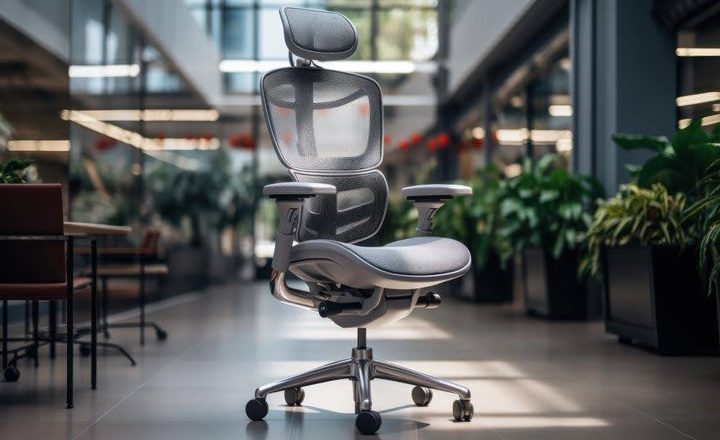
In today’s fast-evolving work environment, especially within Australia's corporate, education, and public service sectors, employee comfort and health are increasingly viewed as integral to operational success. One major contributing factor to workplace wellbeing is the office chair—specifically, an ergonomic or task chair designed to support natural movement, good posture, and long-term physical health.
For organisations looking to boost productivity, reduce absenteeism, and foster a health-conscious workplace culture, understanding what makes a great ergonomic chair is vital. It’s more than just a piece of furniture—it’s a long-term investment in your workforce and organisation.
What Are Ergonomic and Task Chairs?
An ergonomic chair is built to support the user’s posture, reduce repetitive stress, and increase comfort across extended periods of use. Task chairs are a type of ergonomic seating often used at desks for focused work. While both categories overlap, task chairs are typically lighter, more compact, and optimised for productivity.
With Australians spending up to 38 hours per week at work—often seated—the need for well-designed chairs is paramount. This becomes even more critical in hybrid or hot-desking environments where multiple users rely on adjustability and personalised fit.
Key Features That Define an Effective Ergonomic Chair
1. Adjustability: Every body is different, so customisation is crucial. Look for adjustable seat height, armrests, tilt tension, and backrest recline. This allows users to tailor their seating experience to their unique body shape and working style.
2. Lumbar Support: Good chairs maintain the spine’s natural S-curve, particularly in the lumbar region. Adjustable lumbar support helps prevent lower back pain—a leading cause of sick leave in office environments.
3. Seat Depth and Width: A chair that’s too shallow can create pressure behind the knees, while one that’s too deep offers poor support. Ideal chairs allow a gap of about 5–10 cm between the seat edge and the back of the knees.
4. Breathable Materials: In Australia’s varied climates, breathable mesh and high-quality fabric finishes help regulate temperature, preventing discomfort during warmer months.
5. Stability and Mobility: Chairs should swivel easily and move smoothly on quality casters. This reduces the risk of strain from repetitive reaching or twisting motions.
Why Standards Matter: AS/NZS 4438 Compliance
In the Australian market, buyers should verify compliance with AS/NZS 4438:1997. This standard ensures the chair meets health and safety benchmarks around structural strength, durability, and ergonomic support. Organisations that ignore compliance may face liability issues, especially within public sector procurement processes where safety and OH&S compliance are non-negotiable.
Business Case for Ergonomic Investment
Proactive investment in ergonomic task chairs is far from a luxury—it’s a measurable business strategy. Studies have shown that properly designed chairs improve productivity by up to 17% and reduce reported musculoskeletal complaints by over 30%.
From an ROI perspective, a chair that costs $400–$800 can pay for itself quickly through gains in worker efficiency, reduced injury claims, and lower churn rates. In industries where recruitment is competitive, offering health-oriented work environments can also be a major talent attraction and retention tool.
Considerations for Specific Work Environments
Corporate Offices: Fast-paced business environments require chairs that support long hours, client-facing roles, and high-energy performance. Aesthetic appeal may also be important in open-plan spaces or client meeting areas.
Government Departments: Chairs for government staff should meet procurement standards, sustainability criteria, and accommodate extended use. Bulk purchasing with multi-user support is a frequent need.
Education Sector: Staff and faculty in schools and universities often switch between workstations. Lightweight, adjustable chairs with flexible lumbar support are ideal to accommodate multiple users and high turnover.
Procurement and Purchasing Best Practices
Procurement officers and purchasing managers should evaluate more than just price. Consider suppliers with strong warranties, local support, sustainability credentials, and trial options. Testing products in actual workplace settings before large-scale rollouts can reduce risk and boost employee satisfaction.
Purchasing from experienced suppliers like Office Furniture Designs ensures access to curated, compliance-ready seating tailored for Australian businesses. This simplifies decision-making and aligns with broader WHS and environmental policy goals.
Sustainability and Lifecycle Thinking
Modern buyers are increasingly factoring in the full lifecycle of office furniture. Choose ergonomic task chairs made from recyclable components, sustainable materials, and products backed by responsible manufacturing practices. This not only aligns with ESG policies but also contributes to Australia’s waste reduction efforts across commercial sectors.
Furniture with replaceable parts—such as arm pads, wheels, and cushions—extends usability and reduces waste. As ESG reporting becomes mandatory for more Australian entities, sustainable seating is no longer a "nice-to-have"—it’s a reputational asset.
Common Mistakes to Avoid
1. One-Size-Fits-All Approach: A chair suited for one team may not work for another. For example, staff in front-line roles may need lighter, mobile chairs, while executive roles require plush support and premium aesthetics.
2. Ignoring User Feedback: Employees know what they need. Involving them in chair trials can prevent bulk purchases of unpopular or ineffective designs.
3. Focusing Solely on Price: Bargain-bin chairs often lack durability, leading to higher replacement costs and staff dissatisfaction in the long run.
Making an Informed, Long-Term Choice
Ultimately, selecting the right ergonomic or task chair means balancing cost, quality, compliance, comfort, and user-specific needs. Suppliers that offer professional fit-out advice, post-purchase support, and eco-conscious ranges add long-term value to your procurement decision.
For a tailored selection of proven, professional-grade seating, explore our dedicated range of ergonomic task chairs. Designed specifically with Australian workplaces in mind, our options are built to enhance comfort, productivity, and regulatory peace of mind.
| < Prev | Next > |
|---|




